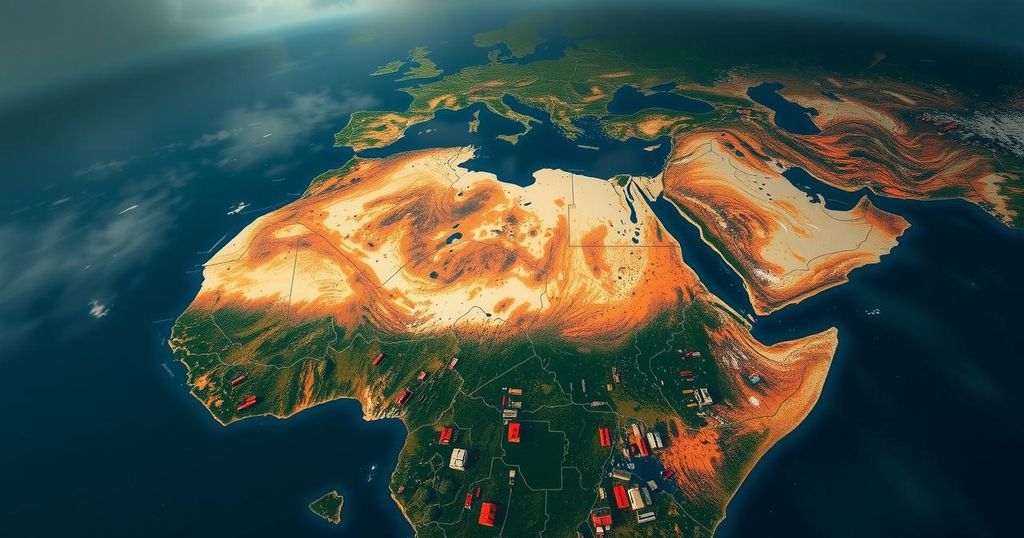Climate Change Intensifies Flooding in Africa, Causing Humanitarian Crisis

A recent study highlights that climate change has worsened floods in Cameroon, Chad, Niger, Nigeria, and Sudan, resulting in nearly 1,500 fatalities and over 1 million displacements. The researchers indicate that rainfall intensity increased by 5-20% due to human-caused climate factors, urging immediate action to transition from fossil fuels and improve preparedness for ongoing extreme weather events.
Recent floods in African nations, including Cameroon, Chad, Niger, Nigeria, and Sudan, have been exacerbated by climate change, according to a report released by a coalition of international scientists. The study, conducted by World Weather Attribution (WWA), highlights that human-induced climate change intensified this year’s rainfall by approximately 5 to 20 percent in the Niger and Lake Chad regions. Such heavy rainfall patterns are now emerging as the new norm, leading to a catastrophic humanitarian situation. These floods resulted in the deaths of nearly 1,500 individuals and displaced over one million people, leaving communities vulnerable and overwhelming existing aid structures. The researchers underscore an alarming trend where frequent, intense rainfall episodes could become an annual occurrence if global warming persists. The urgency for action is emphasized, advocating for a significant transition from fossil fuels at the upcoming UN Cop29 climate summit. The representatives stress the need for rich nations to contribute substantially to combat the disproportionate impacts of climate change, particularly on regions that contribute minimally to global emissions but face the brunt of its effects.
Climate change is increasingly recognized as a critical factor influencing the frequency and severity of extreme weather events. In recent months, parts of West and Central Africa have experienced devastating flooding, a situation worsened by global warming. High-intensity rainfall patterns have been documented, contributing to humanitarian crises across multiple nations. The link between climate change and heightened rainfall is particularly concerning, as predictions suggest that without substantial global action to mitigate climate impacts, such events could escalate.
In summary, the report from WWA illuminates the significant role of climate change in exacerbating flooding across regions in Africa. The projected intensification of rainfall will pose escalating risks to vulnerable populations unless meaningful climate action is undertaken. It is imperative for global leaders to prioritize the transition from fossil fuels and ensure adequate support for those hardest hit by climate change, particularly in regions that have contributed minimally to global emissions but suffer the most severe consequences.
Original Source: www.rfi.fr






